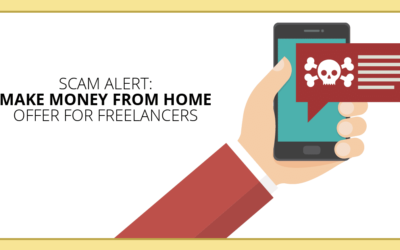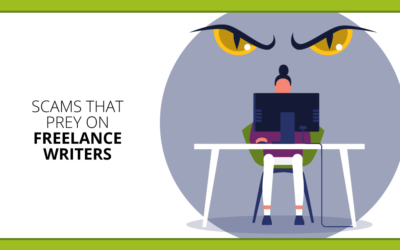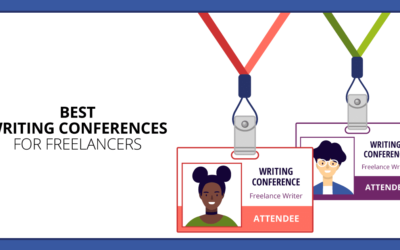Are you hoping to jump into the world of freelance writing? If so, welcome aboard.
Prepared for life without a boss? I hope so.
Spoiler alert: It rocks.
I’ve gotten a lot of email recently along the lines of, “I’m just getting started, where’s the guide for that?”
Freelancing is a complicated business, no? There are so many types of writing work you could do.
How do you know where to start?
Below is my guide to figuring out your easiest entry point. It’s in the form of a series of questions you need to ask yourself:
What topics interest me?
Some writers have a passion for ecological justice, while others love to write about celebrities, fly-fishing, or politics. Start by identifying your interest areas.
Don’t limit yourself to one — try to list at least a half-dozen.
What do I know about?
In addition to topics you like, what do you know something about, even if just from life experience?
For instance, did you nurse a relative through cancer and learn about healthcare, rehab, and hospitals?
Or maybe you used to work in a bank, so you know a bit about financial services.
If you’re a new college grad, you’re familiar with college life — loans, housing, first jobs, saving money.
The old adage “write about what you know” is never more true than when you first start out. It’s the easiest way to convince a client that you’re the writer for the job.
What types of writing do I like to do?
There are many types of paid writing, including articles, blog posts, web pages, brochures, case studies, and a host of other business marketing materials.
It’ll help your search to narrow it down to a specific writing type or two to start. When you get direct mail marketing in your mailbox, if you find yourself thinking, “Heck, I could write this better,” marketing work could be a great area for you to investigate.
What sort of writing pays well?
Now that you know what sort of thing you want to write and what you like to write about, it’s time to discover who would pay you for this type and topic of writing.
Do a little research and you’ll quickly learn writing poetry and personal essays are tough to earn in. Novels are a moonshot, not something that will pay your bills — at least not reliably or soon.
Articles, blog posts, newsletters, web pages, case studies, white papers, annual reports, business plans, government contract bids, marketing materials of all kinds…these things pay.
Smaller publications and companies usually have less pay to offer, larger ones have more. Expect that you’ll start with a few small ones, and then be able to start trying to move up.
Where am I?
While freelance is a global business in the 21st Century, it will often be easiest to find your first clients close to home. If you live in even a moderate-sized city, this will work.
If you’re in a tiny town, you may need to do more aggressive marketing to look for clients outside your area. I personally got on a ferry and went into downtown Seattle to find better prospects. If you need to travel a little — do it.
In any decent-sized town, you can find businesses by checking out your local chamber of commerce, search on Manta for local companies, or grab a Book of Lists — your library may have a copy.
How can I find entry markets?
The easiest way to find good first clients is in the network of people and organizations you already know:
- Your friends and family
- The publications you read
- The nonprofits where you donate or volunteer
- The locally-owned businesses you patronize
- The government agencies that oversee issues of interest to you
By using your network, you should be able to find legitimate clients — established publications or businesses that sell a real product or service. Remember, the Internet is full of scams, so research websites carefully before signing up to write for online sites.
Learn about how to market your writing, and choose a few methods that appeal to you.
Save yourself a lot of heartache and starvation and avoid the content mills. If you use bid sites online, be very selective about what you bid on and what gigs you take. Know that many Craigslist ads are flat-out scams. Beware.
What should I charge?
This is a tricky one. If you have no experience, your easiest road is to offer to do several small projects free to get a few samples and create a starter portfolio. Keep those projects small and make sure you get a testimonial if the client liked your work.
Once you’ve got those, you should be asking for money. To find out how much, try asking the client what their budget is, or their regular article fee, if it’s a magazine. Try to get them to tell you the rate.
If that doesn’t work, reach out to your network of fellow writers (you are joining at least one writer networking and support group, right?) and ask around. Consult The Writer’s Market‘s What to Charge guide, or Chris Marlow’s survey of copywriting rates.
Bottom line: Pick a price. Next time, bid more. Lather, rinse, repeat until you’re earning a decent wage — shoot for at least $50 an hour.
What if I’m scared?
Buck up. Everybody started somewhere. If you want to do this, you’ll need to overcome your fears and put yourself out there. Practicing pitching a friend if you have to.
Do I need a contract?
Yes, you do. Don’t ever start writing without one. Otherwise, the client has no obligation to pay you. Ever.
What’s your best advice?
Persist.
Also…when you’re first starting out, keep it simple and don’t get overwhelmed. There are a lot of options in the freelance world…don’t try to explore them all at once.
Use the question list above to pick out a few likely first moves. Then try them out.
If you don’t get a response, move on to your next best bet.
Writers want to hear that there’s one easy, simple, magical, best way to quickly launch their careers, but in fact every writer is different. It’s trial and error. So get out there and start trying.
Are you just starting out, or have you already started freelancing? Leave a comment and tell us how you got started, or your plan to get going.











